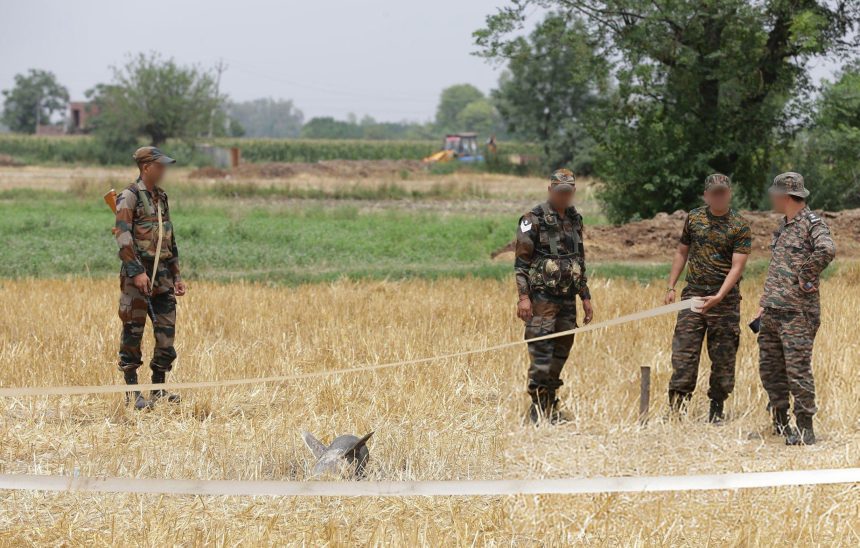In a significant escalation of tensions between India and Pakistan, Indian defense forces successfully intercepted a large-scale drone and missile attack launched by Pakistan on Thursday night. The attempted strikes targeted military installations across 15 cities in northern and western India, including Jammu, Amritsar, Pathankot, Ludhiana, and Chandigarh. India’s swift and robust response not only neutralized the immediate threat but also demonstrated its advanced defense capabilities and strategic resolve.
Pakistan’s Provocation and India’s Vigilant Defense
The Pakistani offensive involved a coordinated assault using drones and missiles aimed at critical military infrastructure. India’s air defense systems, notably the Russian-made S-400 missile defense system, effectively intercepted the incoming threats, preventing any significant damage or casualties. The Indian government reported that debris from the destroyed drones and missiles is being collected to substantiate claims of Pakistan’s involvement in cross-border terrorism.
Operation Sindoor: A Calculated and Precise Retaliation
The genesis of Operation Sindoor lies in the horrific events of April 22, 2025, when the serene Baisaran Valley near Pahalgam in Jammu and Kashmir became the site of a brutal terrorist attack. Gunmen, reportedly affiliated with The Resistance Front—a proxy of the Pakistan-based Lashkar-e-Taiba—opened fire on a group of tourists, killing 26 people and injuring 17 others. Eyewitnesses recounted that the assailants, dressed in army fatigues, singled tourists, verifying their identities before executing them at close range. This calculated massacre, targeting civilians enjoying the natural beauty of the region, sent shockwaves across the nation and the international community.
In the wake of this atrocity, India launched Operation Sindoor, a series of precision strikes aimed at dismantling terrorist infrastructure within Pakistan and Pakistan-occupied Kashmir. The operation targeted nine identified terrorist camps, utilizing advanced munitions to ensure minimal collateral damage. Defense Minister Rajnath Singh confirmed that over 100 terrorists were neutralized during the operation, emphasizing India’s commitment to eradicating terrorism at its roots.
International Reactions and India’s Stance
The international community has expressed concern over the escalating tensions. Former UK Prime Minister Rishi Sunak stated that India was justified in targeting terrorist infrastructure in Pakistan following the deadly Pahalgam attack, which claimed 26 lives. Sunak emphasized that terrorism must not go unpunished and expressed solidarity with India.
India has maintained that its actions are defensive and aimed at safeguarding national security. National Security Advisor Ajit Doval briefed international counterparts, asserting that India has no intent to escalate tensions but is prepared to retaliate resolutely if provoked.
Conclusion
India’s successful interception of Pakistan’s aggressive maneuvers and the subsequent precision strikes under Operation Sindoor underscore the nation’s commitment to defending its sovereignty and combating terrorism. The decisive actions taken by the Indian Armed Forces serve as a stern warning against any future provocations and reaffirm India’s position as a formidable force committed to peace and stability in the region.




